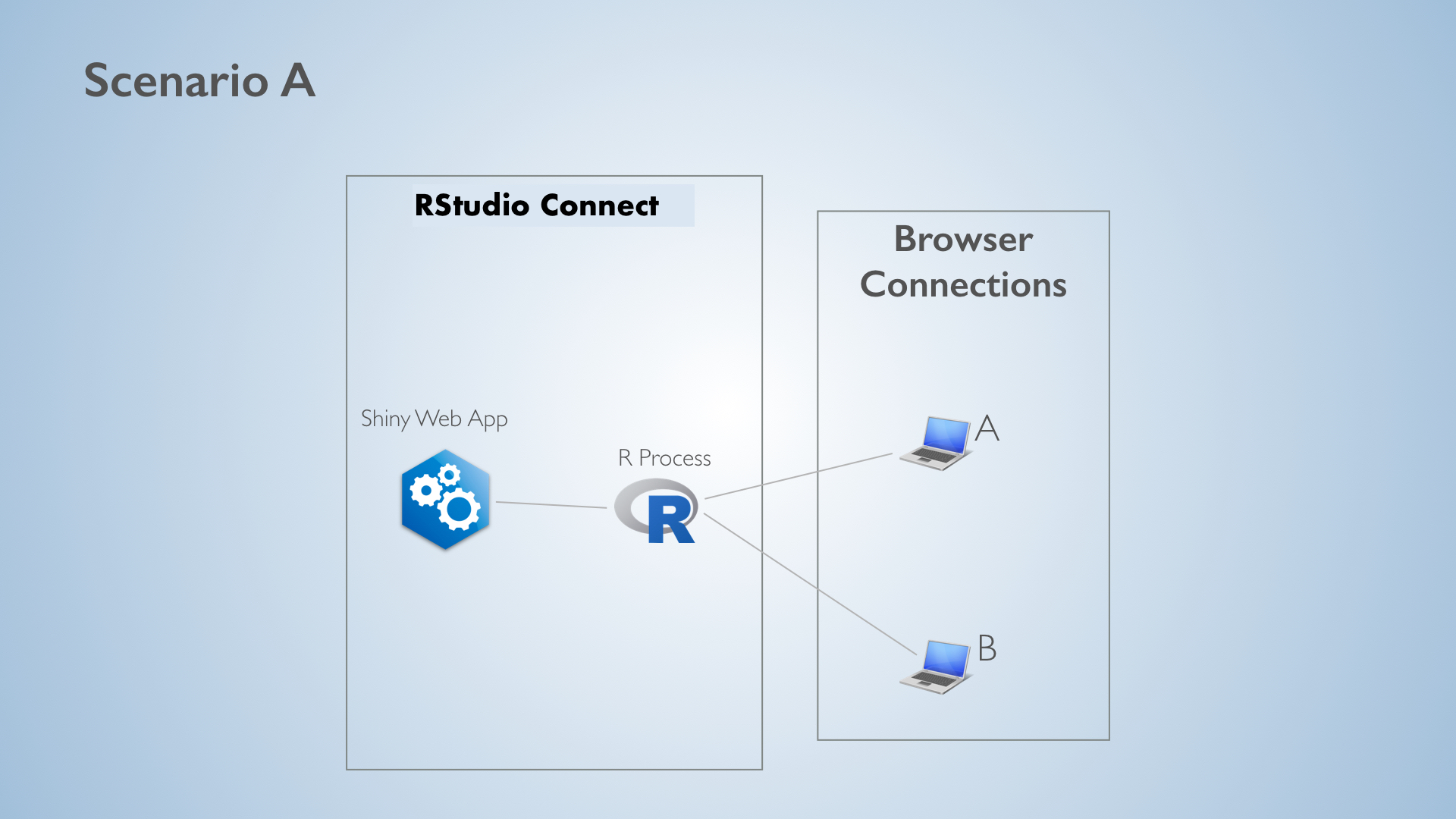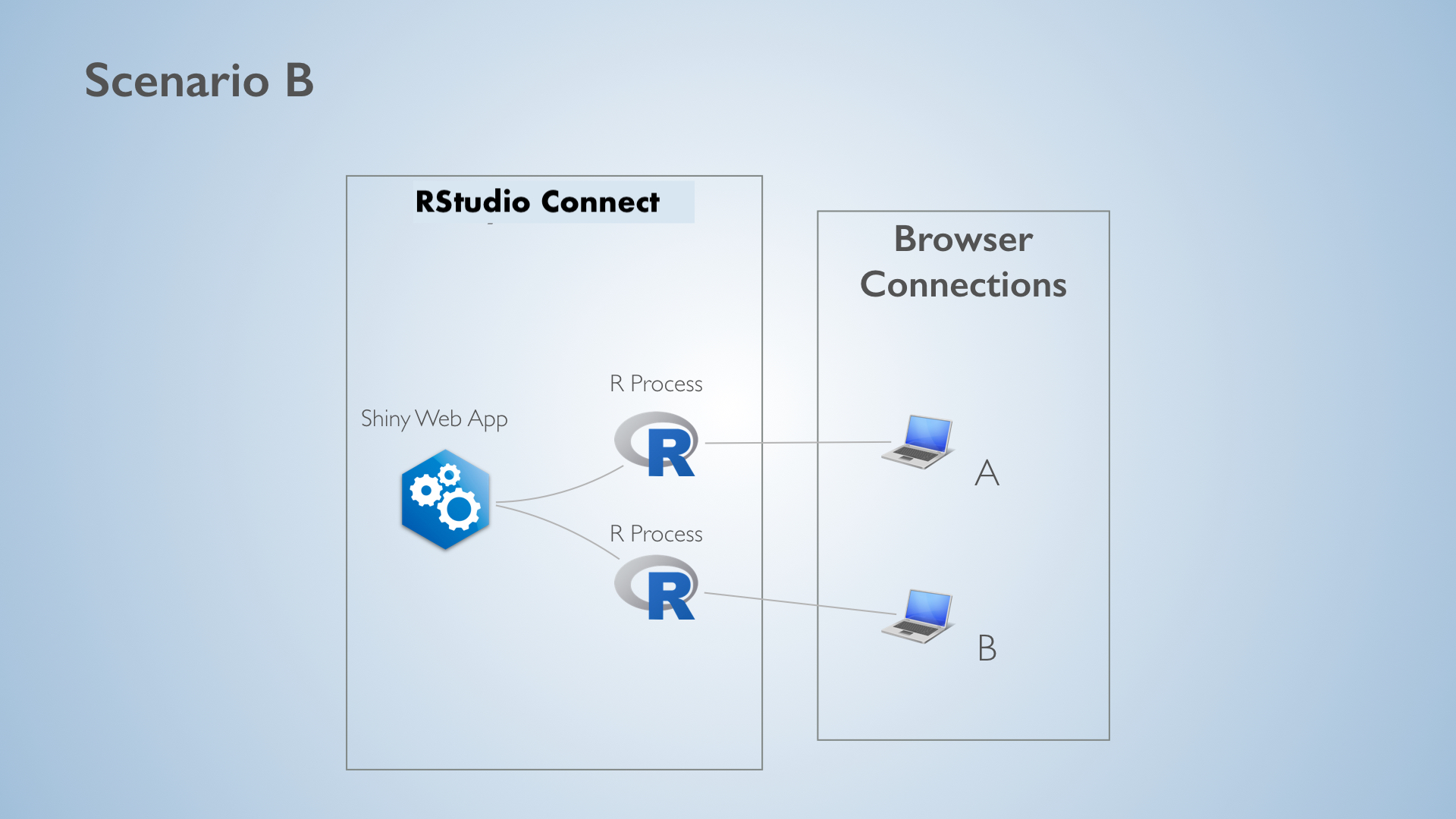Scaling Shiny: Seamless and Effortless Distributed
Computing with mirai
April 11, 2025
In this talk
[ 1 ]
Shiny ExtendedTask
& mirai integration
[ 2 ]
Distributed computing
with mirai to scale Shiny
Shiny ExtendedTask


- 🧠 Unveiled by Joe Cheng (creator of Shiny) at ShinyConf 2024
- 🚀 Offload long-running tasks to another process
→ Enables intra- and inter-session responsiveness - 🔌
miraiis the ideal async counterpart for Shiny ExtendedTask
Shiny ExtendedTask Backends
🔍 mirai vs. future: Key Differences
| Aspect | mirai | future |
|---|---|---|
| Core purpose | Async evaluation | Parallel processing |
| Always non-blocking | ✔ | ✘ (✔ future_promise) |
| Event-driven | ✔ | ✘ |
| Feels like* | reactive |
observer |
* Not technically equivalent, but intuitive analogies
The mirai Promise
🚀 Responsive
- ✔ Sub-millisecond response times
- ✔ Low overhead, zero latency
📈 Scalable
- ✔ Thousands of processes
- ✔ Millions of tasks
🧩 Flexible
- ✔ Mix local & remote processes
- ✔ Dynamic autoscaling
✨ Seamless
- ✔ Full Shiny integration
- ✔ Tight low-level coupling
Syntax
🔄 Quick Comparison
| Function | mirai | future |
|---|---|---|
| Create async task | mirai() |
future_promise() |
| Set up local background processes | daemons(6) |
plan(multisession, workers = 6) |
Scaling Solutions in Context
Before

After

Intra-Session Async
✅ Solved: Shiny ExtendedTask
🧠 Run in background
Offload heavy tasks — compute, I/O, APIs🚦 UI stays responsive
No session blocking📊 Serve more users
Fewer duplicated processes, higher scalability🔌
miraiefficiency
Lowers hurdle to using ExtendedTask
How Does mirai Work?
🖥️ Local
📡️️
daemons(url = local_url())
Opens a local IPC socket
e.g."abstract://85de9c..."🛰️️
launch_local()
Launches 1 local daemon
daemons(6)
Sets and launches 6 local daemons
🌐 Distributed
📡️️
daemons(url = host_url())
Opens a TCP network socket
e.g."tcp://myhostname:40491"launch_remote()
Shows shell command to connect🛰️
launch_remote(remote = ssh_config("ssh://192.168.0.10"))
Launches 1 remote daemon
daemons(6, url = host_url(), remote = ssh_config("ssh://192.168.0.10"))
Sets and launches 6 remote daemons
Distributed Computing over Tunnelled SSH
🔐 SSH tunnelling allows the remote machine to connect back to your network socket as if it were local to that machine
🥇 Step 1: Create the remote launch configuration
🥈 Step 2: Set daemons using a local TCP URL
🥉 Step 3: Launch and scale (with optional auto-scaling)
Thanks
Scaling Shiny: Seamless and Effortless Distributed Computing with mirai


See these slides at https://shikokuchuo-shinyconf2025.share.connect.posit.cloud